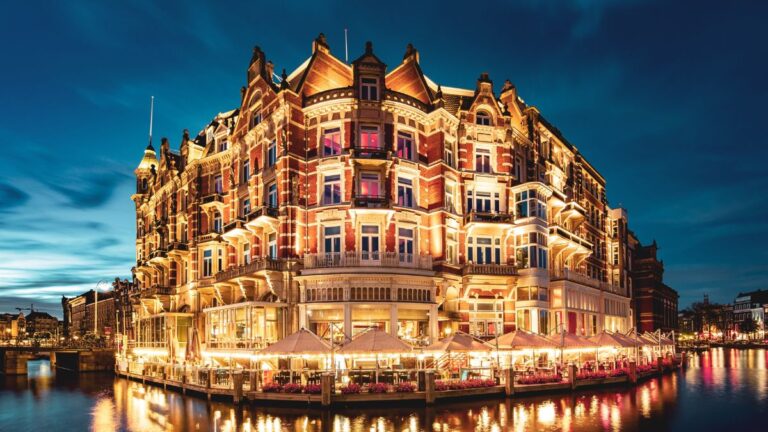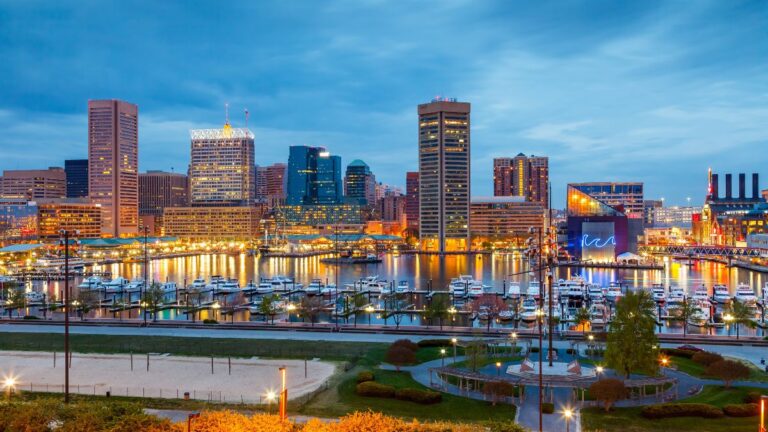Why Is Airbnb So Expensive? Are They Becoming More Expensive Than Hotels?

As participants in Amazon Associates and other programs, we earn from qualifying purchases. This comes at no additional cost to you. For more details, see our Affiliate Disclosure.
Airbnb has revolutionized the way we travel, offering unique and affordable accommodation options for travelers. However, in recent years, many have noticed that the prices of Airbnb rentals have been steadily increasing, sometimes even surpassing the cost of staying in a traditional hotel. In this article, we will explore the reasons behind this trend and examine whether Airbnb is truly becoming more expensive than hotels. Let’s dive in!
HIGHLIGHTS
- Airbnb’s pricing can be influenced by several factors, including local regulations, seasonality, user reviews, and the emergence of luxury listings and Superhosts.
- Despite rising prices in some areas, Airbnb offers a unique array of accommodations, often providing experiences traditional hotels can’t match.
- Regulatory challenges and local legislation across the world can both limit Airbnb’s operation and influence its pricing strategies.
- Practical tips for finding affordable Airbnb listings include being flexible with dates, broadening search areas, considering different property types, and communicating directly with hosts for potential discounts.
A Brief History of Airbnb and its Value Proposition
Airbnb, an abbreviation for “Air Bed & Breakfast,” began in 2008 when founders Brian Chesky and Joe Gebbia, struggling to pay rent in San Francisco, decided to rent out three air mattresses in their living room to conference attendees. Their aim was simple: provide an affordable and authentic travel experience that allowed visitors to “live like a local.” The concept quickly caught on, and with the addition of Nathan Blecharczyk to the team, they launched a website that would revolutionize the travel industry.
Initially, Airbnb’s value proposition was clear: it offered travelers a unique and often more affordable alternative to traditional hotels, and for hosts, it was an opportunity to earn extra income from unused spaces. Beyond just rooms or beds, Airbnb allowed hosts to offer experiences, giving travelers a more intimate glimpse into local cultures and neighborhoods. It promised authenticity, personal connections, and, crucially, affordability.
Over the years, as the platform grew in popularity and expanded globally, its listings diversified. From treehouses to castles and from city apartments to countryside cottages, Airbnb became synonymous with varied and unique accommodations. Yet, as the platform evolved, so did its challenges and its pricing dynamics, leading many to question if its original value proposition still held true.
Factors Driving Airbnb Prices Upwards
While Airbnb began with a mission to offer affordable and unique accommodations, several factors over the years have influenced the upward trajectory of its pricing. Here’s an exploration of the primary reasons behind this trend:
Demand and Supply Dynamics: As Airbnb gained popularity, the demand for unique, home-like accommodations soared. In prime locations especially, where there’s a limited number of properties but a high demand from travelers, prices naturally increase.
Professionalization of Hosting: Initially, many Airbnb hosts were individuals looking to rent out spare rooms or their homes while they were away. Today, however, there are many professional hosts and property management companies with multiple listings. These professionals aim to maximize profits, leading to a potential increase in nightly rates.
Increased Operational Costs: Hosting on Airbnb isn’t without its costs. Cleaning, maintenance, professional photography, and premium amenities can all add up, and these costs are often passed on to the guest.
Regulations and Restrictions: In many cities, regulations have been introduced to limit the number of days a property can be rented out or to impose additional taxes and fees on short-term rentals. These costs can influence hosts to raise their prices.
Platform Service Fees: Airbnb charges hosts a service fee for every booking. While this is often absorbed by the host, in many cases, it’s reflected in the listing price. Moreover, guests also pay a service fee, which adds to the overall cost of a stay.
Dynamic Pricing Models: Many hosts use dynamic pricing tools that automatically adjust listing prices based on demand, local events, seasonality, and other factors. This means prices can fluctuate widely, sometimes pushing them higher.
Shift Toward Luxury Listings: As the platform matured, it attracted more luxurious listings, from upscale apartments to lavish villas and mansions. Such listings cater to a higher-end market and come with a steeper price tag.
Competition with Traditional Hotels: In some locations, especially where hotels are expensive, Airbnb hosts might price their listings just below hotel rates, which could still be higher than what one might expect from a typical Airbnb.
Economic Factors: General economic trends, like inflation or the strength of the local currency, can also play a role in Airbnb pricing.
The rise in Airbnb prices is multifaceted, reflecting a combination of market dynamics, regulatory pressures, and strategic decisions by hosts and the platform itself.
Comparing Costs: Airbnb vs. Traditional Hotels
The debate between Airbnb and traditional hotels isn’t just about the price; it’s about the value and the kind of experience each offers. However, for the sake of simplicity, let’s focus on the financial aspect. When comparing the two, it’s essential to understand the components of each price and what’s included.
- Base Price: Hotels usually have a consistent base price for their rooms, which can be higher during peak seasons or due to demand. Airbnb prices can be more variable, depending on the host’s preferences, location, and type of accommodation.
- Fees and Taxes: Hotels often charge a resort fee, especially in touristy areas, and local taxes. Airbnbs have cleaning fees, service fees, and sometimes, additional guest fees. Local taxes can also be applied, depending on the city or country’s regulations.
- Amenities: Hotels generally include daily cleaning, toiletries, and often free Wi-Fi. Some also offer complimentary breakfast. Airbnb accommodations might not offer daily cleaning, but they often have kitchens, allowing guests to save money by preparing their own meals.
- Location: In prime locations, both hotels and Airbnb listings tend to be more expensive. However, hotels are traditionally located in city centers or near tourist attractions, while Airbnb can offer a wider range of locations, including residential areas.
- Length of Stay: For extended stays, many Airbnb hosts offer discounts, making it more economical than hotels. Hotels might offer slightly reduced rates for longer stays but not to the extent Airbnb hosts often do.
- Booking and Cancellation Policies: Hotels typically have more lenient cancellation policies, often allowing guests to cancel up to 24 hours in advance without penalty. Airbnb cancellation policies are set by the host and can range from flexible to very strict.
Here’s a simplified table comparing the average costs and features:
| Aspect | Airbnb | Traditional Hotel |
|---|---|---|
| Base Price | Variable, set by host | Fixed, varies by season/demand |
| Fees & Taxes | Cleaning, service, local taxes | Resort fees, local taxes |
| Amenities | Kitchens, sometimes Wi-Fi | Daily cleaning, Wi-Fi, breakfast |
| Location | Wide range, including residential | Usually city centers/attractions |
| Length of Stay | Discounts for longer stays | Slight discounts for long stays |
| Cancellation | Varies by host | Often flexible up to 24 hrs |
Note: The above comparisons are generalizations and might not hold true for every scenario. It’s always essential to check specifics when making a booking.
The Hidden Expenses of Airbnb Bookings
Airbnb’s allure has long been its promise of unique accommodations, often at competitive prices. But, as with many services, there are costs that aren’t immediately obvious. Before booking your next stay, it’s important to be aware of these potential hidden expenses:
- Cleaning Fees: While some hosts include cleaning costs in the nightly rate, many add it as a separate fee. Depending on the property and location, this can significantly increase the total cost of your stay.
- Service Fees: Airbnb charges guests a service fee, which covers the platform’s customer support and other services. This fee varies based on the length and price of the reservation and can sometimes be a substantial addition.
- Additional Guest Fees: If you’re traveling with a group, be aware that some listings have a base price for a single or a couple of guests, with additional fees for extra people.
- Local Taxes: Depending on the city or country, there might be local occupancy taxes that are added to the bill. While hotels also charge these, they’re often more transparent about them.
- Security Deposits: Some Airbnb hosts require a security deposit to cover potential damages. While this is typically returned at the end of the stay if everything is in order, it’s an upfront cost that can be hefty.
- Utilities: Especially for longer stays, some hosts may charge extra for utilities, particularly if there’s excessive use of water, electricity, or heating.
- Parking: Unlike many hotels that offer complimentary parking, some Airbnb listings might not provide parking, or they may charge an extra fee, especially in urban areas.
- Premium Amenities: Some listings might advertise amenities like hot tubs, saunas, or specialized equipment. However, there might be an additional charge to access or use these.
- Cancellation Fees: While Airbnb offers various cancellation policies from flexible to strict, you might end up paying a significant amount if you need to cancel or modify your booking, especially if it’s close to your check-in date.
- Exchange Rate Fees: If you’re booking a property outside your home country, your credit card company might charge you a fee for the currency conversion. Additionally, fluctuating exchange rates can affect the final amount you pay.
- Communication Costs: While not a direct fee from Airbnb, if the host is unresponsive or if there are issues during the stay, you might incur costs in terms of phone calls or data usage trying to resolve matters.
While Airbnb offers an incredible array of accommodation options, it’s essential to read listings thoroughly and be aware of all potential costs. This will ensure that there are no unpleasant surprises and that you can truly enjoy your stay.
How Seasonality and Location Affect Airbnb Prices
Seasonality and location play critical roles in shaping Airbnb prices, just as they influence hotel rates. Understanding these factors can help travelers make informed decisions and possibly find better deals.
Seasonality
Seasonality has a pronounced impact on Airbnb listings. During peak travel times, such as summer vacation, spring break, or major holidays, there’s a surge in demand for accommodations. For tourist hotspots near beaches or ski resorts, the high season can see prices skyrocket.
Conversely, during the off-season, many hosts lower their rates to attract the fewer travelers that might be venturing their way. For instance, a beach house that goes for a premium during the summer months might be available for a fraction of the cost during winter.
However, it’s not just the traditional vacation times that can see a bump in Airbnb prices. Local events, conferences, or festivals can also lead to short-term price hikes. A city hosting a major international conference or a popular music festival will see a spike in demand for accommodations, leading to increased Airbnb prices.
Location
Location is another significant determinant. Properties in city centers or close to popular tourist attractions often command higher prices due to the convenience they offer. On the other hand, listings in suburban or rural areas might be cheaper, but they could also mean added transportation costs for travelers.
It’s also worth noting that in cities renowned for their expensive real estate markets, like New York City or Paris, Airbnb prices tend to be higher across the board compared to less expensive locales.
Moreover, certain locations have regulations that limit the availability of short-term rentals. In cities where Airbnb faces restrictions or where there’s a cap on the number of days a property can be rented out annually, reduced supply can drive up prices.
Another subtlety of location-based pricing is the neighborhood vibe and safety. Trendy or upscale neighborhoods might have pricier listings than areas perceived as less safe or less central.
The Role of Superhosts and Luxury Listings
Airbnb has always prided itself on offering a diverse array of accommodations, from a cozy room in someone’s home to grand villas and castles. As the platform has matured, two distinct categories have emerged that influence Airbnb’s pricing structure and guest expectations: Superhosts and luxury listings.
Superhosts
Superhosts are standout hosts who have been recognized by Airbnb for their exceptional service, consistency, and near-perfect reviews. They have met specific criteria, including a high response rate, a significant number of stays without cancellations, and excellent guest feedback. The idea behind the Superhost program is to reward top-tier hosts and provide potential guests with an indicator of quality and reliability.
From a pricing perspective, being a Superhost can often justify a slightly higher rate for listings. Given the assurance of a high-quality stay, many travelers are willing to pay a premium. Superhosts tend to offer a more personalized experience, ensuring that guest needs are met, and often going above and beyond in terms of hospitality. As a result, their listings, even if similar to others in the area, might be priced a bit higher due to the added value they provide.
Luxury Listings
Luxury Listings, on the other hand, represent the upper echelon of what Airbnb offers. This category has grown, especially with the introduction of Airbnb Luxe in 2019. Airbnb Luxe features listings that have passed a rigorous evaluation process for comfort, design, and function. These are properties that rival five-star hotels in terms of amenities, aesthetics, and exclusivity, ranging from opulent city apartments to sprawling estates and private islands.
Naturally, luxury listings come with a heftier price tag. They cater to travelers who prioritize luxury and exclusivity above cost. The rise of such listings on Airbnb showcases the platform’s shift from its initial budget-friendly, grassroots image to a more inclusive platform catering to both ends of the travel market spectrum.
Both Superhosts and luxury listings have enhanced the breadth of Airbnb’s offerings. They have also played pivotal roles in pushing the platform’s average price point upwards. While Airbnb still offers budget options and unique stays, the prominence of Superhosts and the allure of luxury listings give travelers more upscale choices—albeit at a higher cost.
Regulatory Challenges and Local Legislation Impact
The rapid global expansion and popularity of Airbnb have inevitably brought it under the scanner of local authorities. Across the world, cities and municipalities have grappled with how to regulate this new form of short-term accommodation, balancing the interests of hosts, traditional lodging businesses, and neighborhood communities.
The introduction of various local regulations has not only affected the availability and operation of Airbnb listings but has also influenced pricing strategies.
- Limited Rental Days: Some cities have imposed a cap on the number of days a property can be rented out annually. Such limitations can lead hosts to increase prices to maximize revenue in the allowed timeframe.
- Zoning Restrictions: In certain areas, Airbnb listings might be restricted to specific zones, thereby reducing the supply and potentially driving up prices in those zones.
- Licensing and Registration: Mandatory licensing or registration can add an operational cost for hosts, which may be reflected in the listing prices.
- Occupancy Taxes: Many cities require Airbnb to collect local occupancy taxes from guests, similar to what hotels charge. This can add to the overall cost of a stay.
- Safety and Health Regulations: Requirements for safety measures, like fire extinguishers or exit signs, can add to hosts’ expenses, possibly influencing the price of listings.
- Affordable Housing Concerns: In cities with housing shortages, there’s concern that properties are being turned into full-time Airbnb listings rather than being used for long-term rentals. This has led to stricter regulations, potentially limiting the number of listings and influencing prices.
- Neighborhood and Community Concerns: To address concerns about changing neighborhood dynamics or disturbances, some areas have introduced stricter rules or even complete bans, impacting availability and prices.
Regulations, while often in place to ensure safety and fairness, come with a complex set of implications. For Airbnb, they can significantly affect the platform’s operational landscape, host profitability, and guest pricing.
The Influence of User Reviews and Ratings on Pricing
In the peer-to-peer environment of Airbnb, reviews and ratings serve as a critical trust mechanism. Much like other online marketplaces, Airbnb’s system of user feedback offers prospective guests insights into the quality, accuracy, and experience of a listing. But beyond just being a gauge for potential guests, reviews and ratings can have a significant influence on how hosts price their properties.
Trust and Assurance: Listings with high ratings and positive reviews tend to attract more guests. With a proven track record, hosts of such listings often feel justified in setting higher prices due to the perceived higher value and reduced risk for guests.
Premium for Top-rated Listings: As with the “Superhost” badge, listings that consistently receive 5-star reviews can command a premium. These listings have demonstrated their worth and quality, often leading guests to willingly pay more for a proven positive experience.
Competitive Benchmarking: Hosts frequently analyze their competition, and reviews play a crucial role in this. If a host notices their property has better reviews than a similarly priced listing in the vicinity, they might increase their rate, capitalizing on their superior feedback.
Recovery from Negative Reviews: On the flip side, if a listing receives negative reviews, it might see reduced bookings. To counteract this and attract guests, hosts might lower their prices to offer better value for money and rebuild their reputation over time.
Transparency and Honesty: Detailed reviews give hosts feedback on what they’re doing right and areas of improvement. A host may adjust prices downwards if they recognize that certain amenities or experiences promised aren’t up to par, or they might invest in improvements and subsequently raise the price once issues are addressed.
Specialized Feedback: Sometimes, reviews might highlight unique aspects of a property, like a particularly comfortable bed or an outstandingly equipped kitchen. Recognizing these unique selling points, a host might decide to adjust prices to reflect these specialized offerings.
In the digital age, where information is abundant and easily accessible, reviews and ratings are more than just feedback. They’re powerful indicators of value, trustworthiness, and quality. For Airbnb hosts, they offer a roadmap to optimize their offerings and adjust pricing strategies to reflect the perceived value in the eyes of potential guests.
Is it Still Worth Booking an Airbnb?
The question of whether Airbnb remains a worthy option depends largely on the individual needs and preferences of travelers. One undeniable aspect is the unique and diverse array of accommodations Airbnb offers. From treehouses to city-center apartments, and from historical castles to modern lofts, Airbnb listings provide experiences that traditional hotels often cannot match.
Moreover, Airbnb properties frequently offer a sense of home and personal touch. For those on extended trips or looking for a more localized experience, having a full kitchen, living spaces, or even a backyard can be invaluable. This home-away-from-home vibe can make travel more relaxing and personal.
Financially, while Airbnb prices have seen an upward trend in certain areas, they can still offer value. Especially when traveling in groups, renting a multi-bedroom house or apartment can be more cost-effective than booking multiple hotel rooms. Plus, the added benefits like cooking facilities can lead to savings on meals.
On the flip side, there are considerations to keep in mind. Regulatory challenges mean that in some cities, Airbnb options might be limited or more expensive. Additionally, while the review system is robust, there’s still a degree of variability in what guests might encounter compared to the standardized experience of a hotel chain.
Lastly, the interaction with hosts can be a double-edged sword. While many cherish the local tips and personalized care some hosts provide, others might prefer the anonymity and professional service of a hotel.
In conclusion, while the landscape of Airbnb has evolved, it remains a compelling option for many travelers. Weighing the pros and cons based on individual travel needs and preferences is essential to make the best choice for one’s accommodation.
Tips to Find Affordable Airbnb Listings
Finding an affordable Airbnb listing doesn’t have to feel like searching for a needle in a haystack. With a little research, flexibility, and strategy, you can secure a great stay that won’t break the bank. Here are some tips to help you find budget-friendly accommodations on Airbnb:
- Flexibility with Dates: If your travel dates are flexible, play around with your check-in and check-out dates. Often, prices fluctuate based on local events, holidays, or weekends. Staying during off-peak times can fetch you better deals.
- Broaden Your Search Area: While it might be convenient to stay in the heart of a city, these locations tend to be pricier. Look for listings a bit further out but close to public transportation. Suburban or less-touristy neighborhoods often offer equally comfortable stays at a fraction of the cost.
- Use the Price Filter: Airbnb’s search function allows you to set a price range. By setting your maximum budget, you can easily sift through options that are financially feasible for you.
- Consider Different Property Types: You might be eyeing a whole apartment or house, but don’t dismiss private rooms or even shared spaces. They can be significantly cheaper and still offer a pleasant experience, especially if you’re traveling solo or as a couple.
- Look for New Listings: New hosts, eager to get reviews and establish themselves, often set introductory prices that are lower than the market average. While there’s a bit more uncertainty with unreviewed properties, you can gauge a lot from the listing’s photos and description.
- Long-Term Discounts: If you’re planning a longer stay, look for listings that offer weekly or monthly discounts. Many hosts provide significant reductions for guests who book for extended periods.
- Communicate with Hosts: Don’t hesitate to reach out to hosts with a polite message inquiring about potential discounts or offers, especially if you’re booking last minute. Hosts would rather have their property occupied at a slight discount than not at all.
- Avoid High Service Fees: While you can’t evade Airbnb’s service fees entirely, be mindful of listings with hefty cleaning fees or additional guest charges. These can add up and make a seemingly affordable listing more expensive.
- Check the Cancellation Policy: Flexible cancellation policies allow you to book in advance and keep an eye out for better deals. If you find a more affordable or suitable listing, you can switch without incurring heavy penalties.
- Read Reviews: Previous guests often give insights into the value for money a listing offers. Reviews can help you identify hidden gems that are not only affordable but also provide exceptional experiences.
By incorporating these strategies, you can maximize your chances of landing an affordable and delightful Airbnb stay, ensuring your travels are memorable for all the right reasons.






